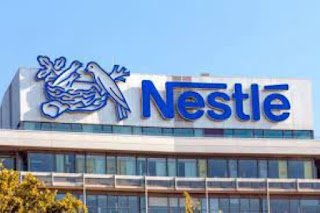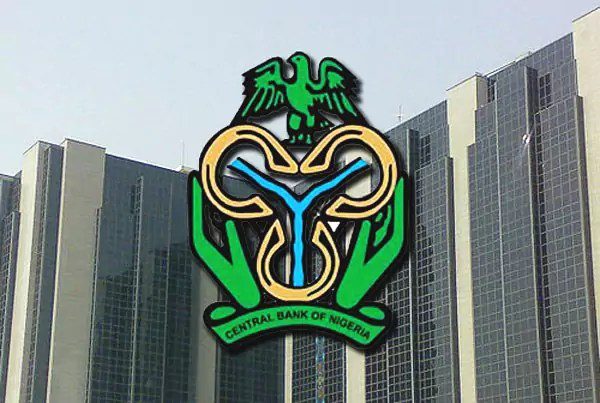On Wednesday, August 27, 2025, the Federal Government of Nigeria issued a stark warning about the devastating economic and human toll of poor sanitation and unsafe water, estimating an annual economic loss of approximately ₦455 billion. The announcement was made during the launch of the Nestlé Water Quality Advocacy Campaign in Abuja, where Engr. Prof. Joseph Terlumun Utsev, Minister of Water Resources and Sanitation, represented by Mrs. Elizabeth Ugoh, Director of Water Quality Control and Sanitation, called for urgent action to address the crisis. Highlighting the findings of the 2021 National Water Report, which revealed alarming contamination levels in drinking water, the government emphasized the need for increased investment and collaboration to mitigate health risks and achieve sustainable development. The Nestlé campaign, launched in partnership with the Organised Private Sector in Water, Sanitation, and Hygiene (OPS-WASH), aims to raise awareness and foster multi-sectoral action to tackle Nigeria’s water crisis. This article explores the government’s concerns, the campaign’s objectives, the scale of the water and sanitation challenge, and the path forward for Nigeria.
The Alarming Economic and Human Cost
The revelation of a ₦455 billion annual economic loss due to poor sanitation and unsafe water underscores the profound impact of Nigeria’s water crisis on its economy and society. Speaking at the campaign launch, Mrs. Elizabeth Ugoh, representing Minister Utsev, highlighted the findings of the 2021 National Water Report, which described contamination indices in drinking water as “deeply troubling.” The report revealed that many water sources across Nigeria, including boreholes, wells, and surface water, are contaminated by pollutants such as sewage, industrial waste, and agricultural runoff, posing significant health risks to millions of Nigerians.
Utsev, through Ugoh, emphasized that unsafe water is a major driver of preventable diseases, placing immense burdens on public health, productivity, and education. “Without access to safe water, our progress towards sustainable development remains incomplete,” he warned, linking water quality to Nigeria’s ability to achieve the United Nations’ Sustainable Development Goals (SDGs), particularly SDG 6, which focuses on ensuring access to clean water and sanitation for all. The economic loss of ₦455 billion reflects direct costs, such as healthcare expenditures for treating waterborne diseases, and indirect costs, including lost productivity due to illness and absenteeism.
The human toll of the crisis is equally devastating. Victoria Uwadoka, Corporate Communications, Corporate Affairs, and Sustainability Lead at Nestlé Nigeria, cited research from Corporate Accountability and Public Participation Africa (CAPPA) that paints a grim picture. Over 113 million Nigerians—more than half the country’s population—lack access to safe drinking water, relying on contaminated sources that expose them to health risks. Even more alarming is the annual death toll, with an estimated 87,000 children under five dying from diarrhea caused by inadequate water, sanitation, and hygiene (WASH) practices. Broader studies indicate that waterborne diseases, including cholera, typhoid, and dysentery, claim over 70,000 lives annually, affecting both children and adults, particularly in vulnerable communities.
The Nestlé Water Quality Advocacy Campaign
The launch of the Nestlé Water Quality Advocacy Campaign marks a significant effort to address Nigeria’s water crisis through awareness, collaboration, and actionable solutions. Organized in partnership with OPS-WASH, the campaign seeks to bridge the knowledge gap on water quality and safety, which Uwadoka described as a subject that “receives far less attention than it deserves despite its urgent significance.” By engaging stakeholders across government, industry, academia, media, civil society, and communities, the campaign aims to create a unified approach to tackling the crisis.
The campaign is structured in three phases: stakeholder engagement, the official launch, and a broad rollout. The stakeholder engagement phase involves consultations with government agencies, community leaders, private sector partners, and civil society organizations to build consensus and align efforts. The official launch, held on August 27, 2025, in Abuja, marked the formal beginning of the campaign, bringing together key actors to highlight the urgency of the water crisis. The broad rollout phase will involve a multi-channel approach, utilizing print, broadcast, and social media, as well as grassroots mobilization and community events, to reach both urban and rural populations.
Uwadoka emphasized the importance of multi-sectoral collaboration, stating, “Real change requires collaboration across government, industry, academia, media, civil society, and every individual.” This approach recognizes the complexity of the water crisis, which requires coordinated efforts to address systemic issues such as infrastructure deficits, weak regulation, and lack of public awareness. By leveraging the strengths of diverse stakeholders, the campaign aims to create sustainable solutions that improve water quality and sanitation across Nigeria.
Government’s Call for Systemic Reforms
Minister Utsev’s address, delivered through Mrs. Ugoh, outlined a clear strategy for addressing Nigeria’s water crisis, emphasizing three key priorities: strengthening monitoring systems, enforcing standards, and empowering communities. “We must strengthen monitoring systems, enforce standards, and empower communities to take ownership of the very water they consume,” he said. These priorities reflect a comprehensive approach to tackling the crisis, addressing both technical and social dimensions.
Strengthening monitoring systems is critical to identifying and addressing contamination risks. Many of Nigeria’s water sources are polluted by industrial waste, sewage, and agricultural runoff, which go undetected due to inadequate testing and monitoring. By investing in advanced water quality testing and real-time monitoring technologies, the government can ensure that water sources meet safety standards and protect public health.
Enforcing standards is equally important, as lax regulation has allowed substandard water supply systems to persist. The government’s commitment to aligning with global benchmarks, such as those set by the World Health Organization (WHO), underscores the need for robust regulatory frameworks. Enforcing standards will require collaboration between federal, state, and local governments, as well as partnerships with the private sector to ensure compliance.
Empowering communities is a cornerstone of sustainable water management. By educating residents about water safety and hygiene practices, and providing them with the tools to maintain local water systems, the government can foster a sense of ownership and accountability. Community-driven initiatives, such as water committees and sanitation drives, can ensure that solutions are tailored to local needs and sustainable over the long term.
Utsev also called for stronger collaboration through advocacy platforms like the annual Water Policy Conference, which brings together stakeholders to discuss challenges and solutions. By fostering dialogue and consensus, the conference can drive policy reforms and mobilize resources to address the water crisis. The minister’s emphasis on increased investment reflects the scale of the challenge, as Nigeria’s water and sanitation infrastructure requires significant funding to meet the needs of its growing population.
Nestlé’s Leadership in Water Stewardship
Nestlé Nigeria, a leading player in the food and beverage industry, has positioned itself as a key partner in addressing Nigeria’s water crisis. Mr. Olutayo Olatunji, Business Executive Officer for Nestlé Waters and Premium Beverages, reaffirmed the company’s commitment to global water stewardship benchmarks during the campaign launch. He revealed that all Nestlé sites in Nigeria are set to be certified under the Alliance for Water Stewardship (AWS) Standard by the end of 2025, a significant milestone in sustainable water management.
The AWS Standard is a globally recognized framework that promotes responsible water use, watershed protection, and community engagement. By achieving certification, Nestlé demonstrates its commitment to aligning its operations with international best practices. “Beyond production, we are committed to protecting local watersheds, engaging host communities, and advancing sustainable water management,” Olatunji said, highlighting the company’s holistic approach.
Olatunji outlined Nestlé’s rigorous process for delivering premium-quality bottled water, which includes safeguarding underground sources, advanced filtration and purification, re-mineralization for taste and balance, and strict quality control protocols. “This demonstrates that access to high-quality water is entirely achievable when appropriate standards and investments are applied,” he said, offering a model for scalable solutions to Nigeria’s water crisis. Nestlé’s approach shows that private sector innovation can play a critical role in improving water access and quality.
Beyond its bottling operations, Nestlé’s sustainability strategy includes reducing water use, protecting aquifers, and investing in source security for communities. These efforts address the broader environmental and social impacts of water management, ensuring that communities near Nestlé’s operations benefit from improved access to clean water. By setting an example for other private sector actors, Nestlé is contributing to a more sustainable and equitable water ecosystem in Nigeria.
The Scale of Nigeria’s Water Crisis
The statistics presented during the campaign launch paint a sobering picture of Nigeria’s water crisis. With over 113 million people lacking access to safe drinking water, the country faces one of the most severe water access challenges in the world. Rural communities, where infrastructure is limited, and urban slums, where overcrowding exacerbates sanitation issues, are particularly affected. Women and children bear the brunt of the crisis, as they often spend hours fetching water from unsafe sources, exposing them to health risks and limiting their opportunities for education and economic participation.
The human toll is staggering, with 87,000 children under five dying annually from diarrhea linked to poor WASH practices. Waterborne diseases, including cholera, typhoid, and dysentery, claim over 70,000 lives each year, affecting both children and adults. These preventable deaths highlight the urgent need for systemic interventions to improve water quality, sanitation, and hygiene education.
The economic impact is equally significant. The ₦455 billion annual loss represents a substantial drain on Nigeria’s economy, equivalent to a significant portion of the national budget. This loss encompasses healthcare costs for treating waterborne diseases, lost productivity due to illness, and reduced educational outcomes as children miss school due to water-related health issues. The strain on families, communities, and institutions underscores the need for immediate action to address the crisis.
Opportunities for Collaboration and Innovation
The Nestlé Water Quality Advocacy Campaign offers a framework for addressing Nigeria’s water crisis through collaboration and innovation. By engaging government, industry, academia, media, and civil society, the campaign creates a platform for sharing knowledge, resources, and expertise. Government policies and funding can drive infrastructure development, while private sector actors like Nestlé bring technological innovation and investment. Academia contributes research and data to inform policy, and media amplifies awareness to shift public behaviors.
Grassroots mobilization, a key component of the campaign’s rollout phase, is critical for empowering communities. Community events, such as water safety workshops and sanitation drives, can educate residents, promote hygiene practices, and foster local accountability. By involving individuals at the grassroots level, the campaign ensures that solutions are tailored to local contexts and sustainable over time.
The private sector’s role in innovation is particularly promising. Nestlé’s advanced water treatment processes, such as filtration and re-mineralization, demonstrate that high-quality water is achievable with the right investments. Public-private partnerships can scale these solutions, extending access to clean water to underserved areas. Technologies like solar-powered water treatment systems and mobile water testing units offer additional opportunities to improve access in remote communities.
Challenges to Overcome
Addressing Nigeria’s water crisis requires overcoming significant challenges, including underfunded infrastructure, weak regulatory enforcement, and cultural barriers to hygiene practices. Decades of underinvestment have left many water systems in disrepair, particularly in rural areas, where access to piped water is limited. Corruption and inefficiencies in public spending have also hindered progress, highlighting the need for transparency and accountability.
Cultural attitudes toward water and sanitation practices can also pose challenges. In some communities, open defecation and reliance on contaminated water sources persist due to lack of awareness or infrastructure. Education campaigns, like the Nestlé initiative, are critical for shifting behaviors and promoting hygiene practices.
Despite these challenges, the crisis presents opportunities for transformative change. By prioritizing water and sanitation in national and state budgets, Nigeria can address infrastructure deficits and reduce the economic and human toll. International partnerships, including with organizations like the WHO and UNICEF, can provide technical expertise and funding to support these efforts.
Conclusion
The Federal Government’s warning of a ₦455 billion annual economic loss due to poor sanitation and unsafe water, announced on August 27, 2025, highlights the urgent need to address Nigeria’s water crisis. Minister Utsev’s call for increased investment, stronger monitoring, and community empowerment, combined with the Nestlé Water Quality Advocacy Campaign, offers a path forward. With over 113 million Nigerians lacking safe drinking water and thousands dying annually from waterborne diseases, the stakes are high.
The campaign’s multi-phase approach, supported by partnerships with OPS-WASH and other stakeholders, demonstrates the power of collaboration in tackling complex challenges. Nestlé’s commitment to water stewardship, including AWS certification and community-focused initiatives, sets a standard for private sector involvement. By strengthening monitoring systems, enforcing standards, and empowering communities, Nigeria can reduce the economic and human cost of its water crisis and advance its sustainable development goals. The Nestlé campaign is a call to action for all Nigerians to unite in ensuring that clean water and sanitation become a reality for every citizen.






